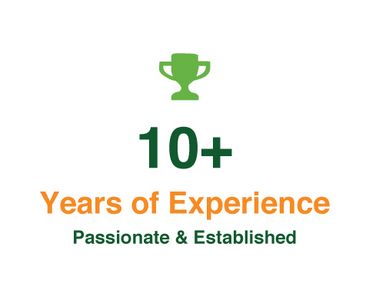Business School Admissions Consultanting Services

Featured Admissions Consultant: Alex
Alexander is a reporter for The Wall Street Journal who also works part-time as a consultant on graduate and undergraduate admissions and essay writing, as well as a GMAT, GRE, and SAT instructor.
He has helped students successfully apply to the Harvard Kennedy School of Government, INSEAD, and Dartmouth. Alex is a well-known writer whose byline has appeared on WSJ's front page seven times.
Alex earned his MBA from NYU Stern, with a specialization in Strategy, by taking evening and weekend classes while working full-time at WSJ. He scored in the 99% percentile on the verbal section of the GMAT. Before returning to New York to work as a financial journalist, Alex was the head of undergraduate programs at the Princeton Review office in Shanghai, China. His writing skills, combined with his background as an instructor, make him highly effective at helping his students reach their goals.
Featured Admissions Consultant: Stuart
Stuart is a popular GMAT, GRE, LSAT, TOEFL and SAT/ACT instructor and an admissions consultant at Manhattan Elite Prep. Joy in educating is at the heart of his passion for teaching. He holds an MBA from the Wharton School of Business and has a GMAT score in the 96th percentile. He also holds a BA degree in Psychology from Georgetown University. In addition, Stuart taught English in Taiwan and Japan each for one year and has tutored a large number of foreign students learning English during his 20 years as a tutor. He also has nine years of work experience in corporate marketing with companies such as Intuit.com.
Perhaps more important than the above is Stuart's talent to teach and coach all students to success, from whatever culture or country they may come. He has a cultural sensitivity borne of having lived and traveled in over 15 countries. Stuart studied French, Spanish, Chinese and Japanese because he has a thirst for language and engaging with other cultures.
There is no doubt that Stuart has enriched the lives of many students with the breadth of his international, foreign language, creative and business experience, helping him successfully guide students from every culture and economic status to realize their potential. In addition to having substantial experience tutoring the SAT, PSAT, ACT, GMAT, GRE and TOEFL exams, Stuart has taken once and tutored twice the Graduate Management Admissions Council Executive Assessment.
Why MBA: Reputation, Skills, Salary, Network & Opportunities
A Master's of Business Administration (MBA) is an advanced degree offered by most business schools to college graduates who (preferably) have a few years of work experience. MBA coursework teaches students essential skills for the corporate world by focusing on both the technical (e.g., finance and economics) and personal (e.g., leadership and management) abilities. Earning an MBA has become an essential step in establishing a successful career in the business world. Some companies are willing to sponsor their employees' education, either while they are working part-time, or during a hiatus from their employment (with a contract to return afterwards).
Today most business people in management positions have MBAs. While it is possible to achieve success in the business world without an MBA, not having a degree from a top business school can be a severe handicap because so many people continue their education and training. Both the quantitative and qualitative skills taught in MBA programs are qualities that are in high demand in the real business world. If you decide not to pursue an MBA, it is possible that you are making a decision that will hinder your future success in the corporate world.
There are a multitude of reasons why so many people now consider an MBA to be an integral step in their career paths. Just having an MBA can make the difference between a high-paying, high-power job, and an endless cycle of unsuccessful interviews. Statistics show a pronounced difference in salary between graduates of top MBA programs and the MBA-less (on average the former earns as much as twice the latter). There is also a substantial gap in pay between those with MBAs from top schools, and those who graduate from lower-ranked institutions. Because the stakes are so high, seeking expert advice, and meticulously preparing your application is essential for your future success at a top business school.
Increased salary is only one of the benefits of an MBA from a top business school. Job flexibility and security, the opportunity to make important connections, enhanced upward mobility, and the satisfaction of doing more interesting, significant work are just a few of the reasons why hundreds of thousands of applicants attempt to gain admittance to business school each year.
Entrepreneurs often seek MBAs before they strike out on their own so that they can learn from businessmen who have already succeeded. This gives them a greater chance of success in the real world. An MBA provides both a qualification that will help further your career path and a body of practical knowledge. This combination of credentials and expertise will help you achieve your goals regardless of the profession you choose.
During your years in business school, you will likely meet many people, some of whom may prove to be valuable contacts later in your career. The establishment of a broader network of contacts is one of the reasons why it is important to go to a top business school. The better the business school, the more valuable those contacts are likely to be.
Interacting with a network of well-trained and educated business contacts while in school is also excellent practice for your re-entering the business world full time post MBA. Working closely with others and finding common ground with your fellow students provides you with training for any future positions with much higher stakes. By then your business and interpersonal skills could mean the difference between winning or losing a multi-million dollar contract with an important client.
MBA Programs: Full-time, Part-time, Two-Year vs One-Year, Joint Degree, Online
Traditional Model
MBA programs are designed in several different ways. Each program has its own unique rules and philosophy.
The traditional MBA model requires its students to take certain core requirements in their first year and to take electives courses in their second year. This model enables student to establish a solid background in the fundamental areas of the study of business and explore particular areas of interest in their second year of study.
Generally, schools identify themselves with certain areas of expertise. In order for you to specialize in a particular area, you typically will need 5 courses within a specialty. For individuals with strong math and accounting backgrounds, it is possible that they will be exempted from certain courses and thus able to finish their degree more quickly, but such exemptions occur strictly on a school to school basis. Such an exemption allows you either to finish early or to take more advanced level courses. Again, this will depend upon the specific guidelines of a particular program.
Accelerated Programs
One year programs typically last a year to a year and a half. In general, all students in your program are on the same track. They have the advantage of smaller investment of time and money than two-year programs however they often lack the opportunity to specialize. Many European business schools are one-year programs. In the US, some top business schools also offer accelerated MBA programs in addition to the traditional two-year track. For example, Johnson Business School of Cornell University offers a one-year MBA program for students with other advanced degrees. Columbia Business School offers a one-and-half year MBA program for students with more work experience or other advanced degrees.
Besides traditional full-time MBA programs, some schools also offer part-time, dual degree and distance learning programs for you to earn your MBA in the most optimal way based on your interests, lifestyle, and individual preferences.
Pros: Save Money, Keep Job, Do Not Have To Move Your Family, Earn MBA
Cons: Fewer Career Options, More Limited Network, Smaller Increase In Salary, Lots Of Work, Maybe Very Stressful
Please be aware that part-time students tend not to get the same treatment as full-time students. Sometimes full-time students are privileged in terms of spots in courses and simply as a result of having more time are able to get to know professor and have a flexible enough schedule to do so. In a similar sense, part-time business school students have fewer opportunities to network and their jobs tend to prevent them from enjoying all that a program has to offer-i.e. opportunities to actively participated in clubs, opportunities to attend events (recruiting events, parties, lectures).
As a means of making the part-time MBA status work well for you, we suggest:
-Excellent time management.
-Do not drag out the process, take enough classes (though not excessive) to enable you to finish in a timely manner.
-Make friends, especially attempt to connect with some fellow part-time students.
-Remember that if part-time is too frustrating, you can switch to full-time status.
-Make time for yourself to relax. Three to four years without weekends is too much to take.
-Try working from home occasionally.
If being a part-time makes sense financially and professionally, you should do it. You will in the end have the same degree as your fellow full-time students. And you will have accomplished the not-so-easy task of balancing work and study, a marketable skill. You will have the opportunity to get to know your fellow part-time students and through them to develop some valuable connections.
Another option is to begin as a part-time student and end as a full-time student. That way you can make yourself more available at the end when it seems to be the most intensive period for seeking post-business school positions.
Dual Degree Programs
Joint-degree programs offer the opportunity to get through two degrees at once faster than you would finish them separately, but more than that, dual-degrees offer you the unique opportunity to diversify your background through the study of two disciplines in which you have an interest and witness where and how these disciplines overlap. A JD/MBA program is a very common dual-degree. But there are many others.
There are a variety of dual-degree programs from which you may choose. Some students view the dual-degree program as an opportunity to gain expertise in range of disciplines. From school to school, the programs vary. You can combine a Public Health master's degree, a Medical degree, a Law degree, or an International Affairs degree with an MBA. Certain schools have established excellent dual-degree programs.
Take a moment and consider what you will do with a dual-degree before jumping into one. This will be both a financial commitment and a commitment of additional time in school. You will need to consider where you want the degree to take you and if this combination will suit those needs. Will this combination provide you with additional opportunities or limit them? Will the degree increase your earning potential or limit it?
For some students, the financial commitment in itself may be enough to deter them from engaging in a dual degree program. But for others, they may find the dual degree to offer them a diverse experience, a chance to be a part of two worlds and an ability to gain knowledge of a field that will work as a complement to their business and management skills. On average, less than 10 percent of MBA students seek an additional degree. However, the dual degree may be just the thing you want.
Distance-Learning Programs
Many schools offer distance-learning programs. In these programs you attend courses, often online, or through occasional trips to campus throughout the year. The duration of MBA programs can vary greatly but generally they are self-paced.
While distance learning programs lack direct exposure and interactions with faculty and students, they can have the benefit of allowing you to be flexible with where you live and work as you pursue your MBA.
Distance learning MBA programs also grant you the same degree as your full-time MBA or part-time MBA colleagues earn and often at a lower tuition.
Admissions Consulting Services at a Glance

Essay & Resume Review
- Single Essay at $150 (up to 800 words), Mini Pack at $200 (Resume & Essay (800 Words or Less) or 2 Essays of 250 Words Each)
- Essay Review for all essays & resume for 1 school at $450 or for 2 schools at $800;
- Each additional school: $350
- Cost of each set of additional 800 words in the same essay: $50; *3 day rush +$75; Weekend Rush +$100
- Includes grammar & style review, advice on theme & content, 3 exchanges per essay, 5-7 turn around time

A la Carte Services (Special Topics)
- Application Strategy - Work with our consultants to devise the most effective application strategy that gets you into your top-choice school. ($150/hr, 2 hrs. minimum)
- Mock Interview - Work with our consultants to prepare for anticipated questions to be expected during an interview. Appropriate for college, graduate (MBA/JD/Masters' Degrees) and jobs. ($150/hr, 2 hrs. minimum)
- Case Interview - Case interview questions tend to coalesce around specific topics relating to a firm's outlook, such as operational concerns, government regulation, or its market share in relation to the market's size. Prepare first with our consultants to maximize your chances of landing the assignment. ($150/hr, 2 hrs. minimum)
Dedicated Packs
- Dedicated Pack - Includes Personal Assessment; School Selection; Defining Objectives/Goals; Plan Application Roadmap; Application Assistance; Concise Selection of Profound Experiences; Formation of Compelling Resume; Convincing Essays (Unlimited exchanges/edits); Persuasive Recommendation Letters; Refine your Application; Mock Interviews; Scholarship/Loan Applications; Acceptance and Preparation; Waitlist/Deferral Strategy; Re-application Strategy.
- 1 School - $1900; 2 Schools - $2800; 3 Schools - $3700; 4 Schools - $4600; 5 Schools - $5400
Elite Packs
- Elite Pack - In addition to everything included in Dedicated Pack, it includes: Guaranteed to work with our most experienced and successful elite consultants; 7 day per week access to elite consultant via Skype/Zoom/WebEx; Prompt turnaround; Access to the most recent database of essays, recommendations, resumes; Unlimited interview preparation; Exclusive strategy session for getting noticed when visiting school or attending information sessions; Live online sessions via Zoom/WebEx where both parties can annotate any documents and share a whiteboard; Unlimited access to the live Zoom/WebEx online recordings related to your application.
- 1 School: $4000 - 2 Schools: $5000 - 3 Schools: $6000 - 4 Schools: $7000 - 5 Schools: $8000
Special Admissions Packs
- Rejection Analysis Pack - Includes application review, consultation and guidance with our education expert to identify issues & evaluate weaknesses in rejected applications and plan next steps and additional follow-up analysis
- Waitlist Strategy Pack - Includes application review, consultation and guidance with our education expert to evaluate weaknesses in a waitlisted application, and make recommendations for interim period, and additional follow-up analysis to dramatically increase chances of acceptance
- Scholarship Application Review Pack - Our consultants will help you identify specific scholarships to apply for, work with you to identify strengths that correlate with the stated objectives of the scholarship and review the applications to ensure your chance of receiving the scholarship is as high as possible
Special Admissions Pack Payment
Admissions Consulting Registration & Payment
For more recent admissions success stories, please visit Student Admissions Testimonial page.
For more information please email us at admissions(at)manhattaneliteprep.com.
To make payments for our Admissions Consultation Services, please visit our Admissions Consulting Page.